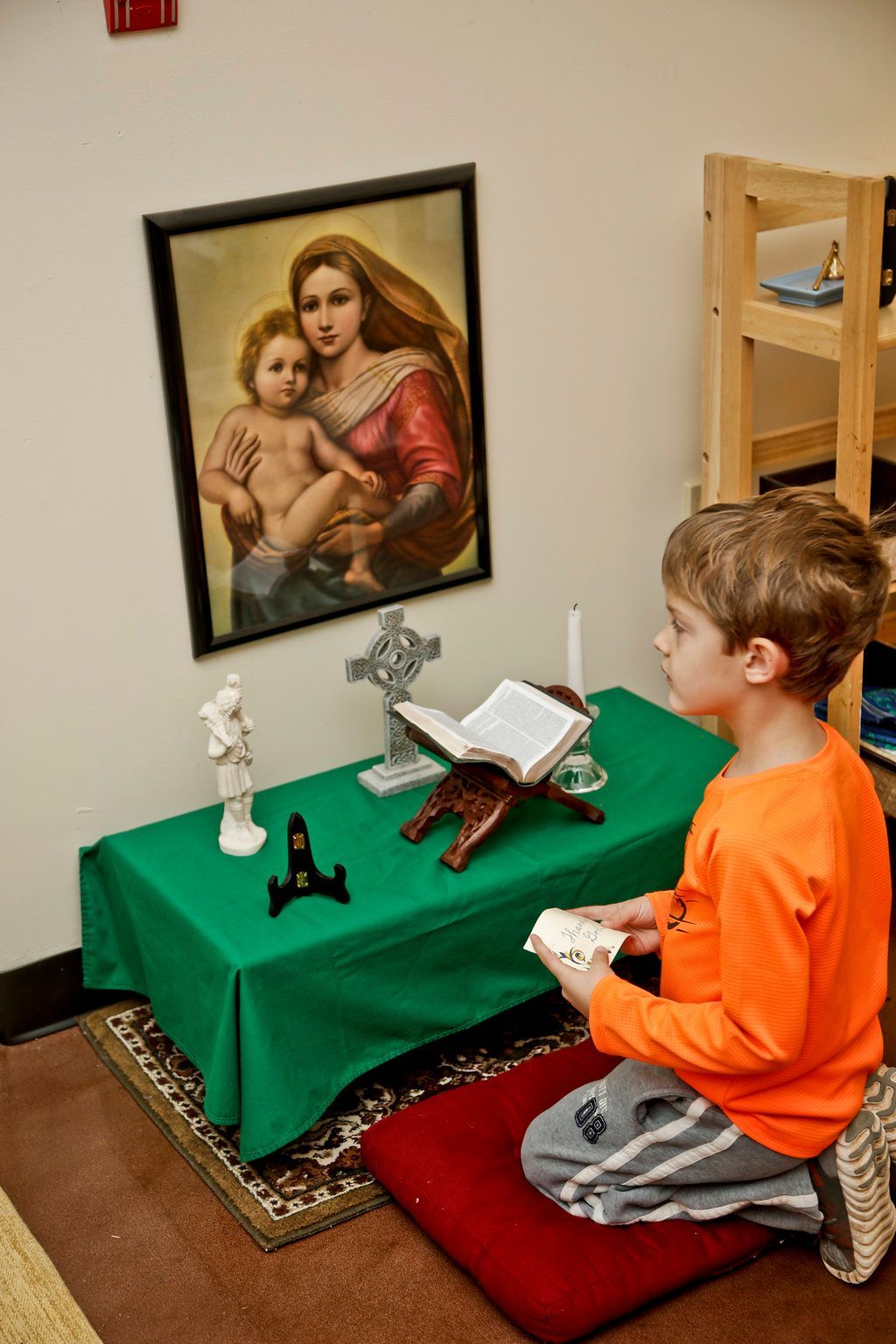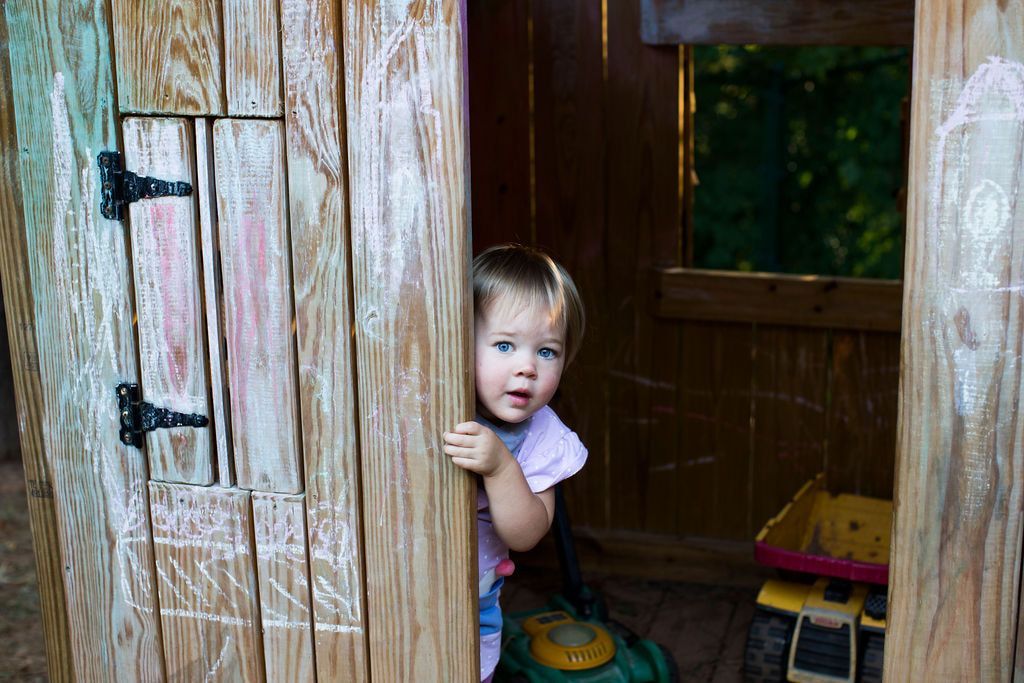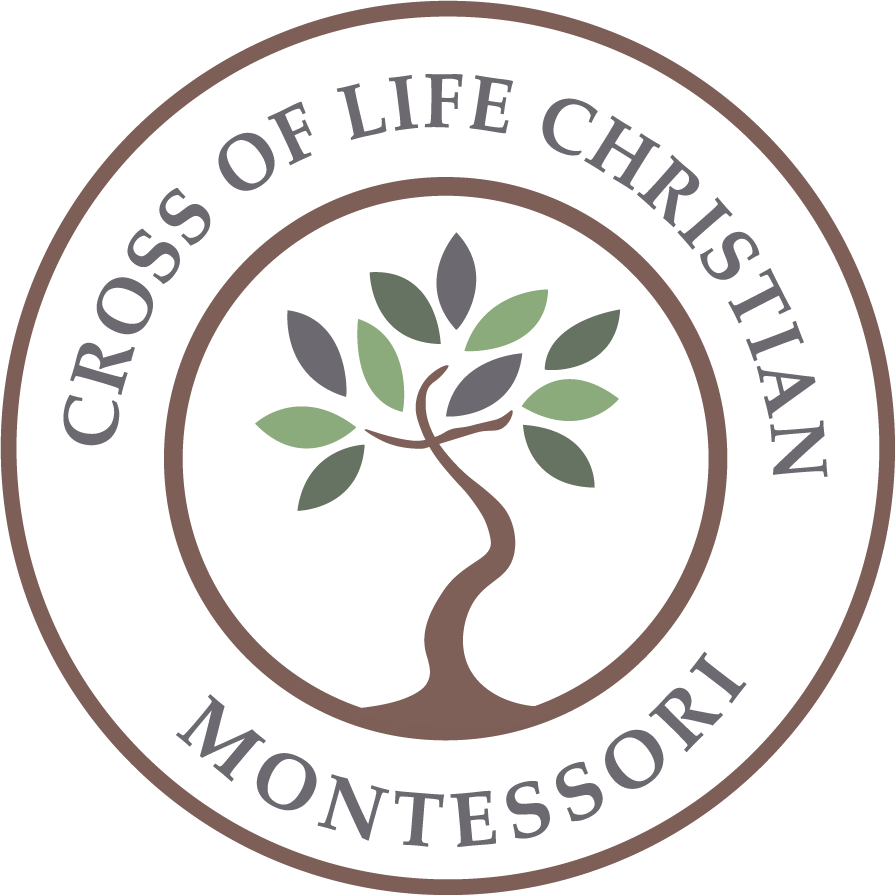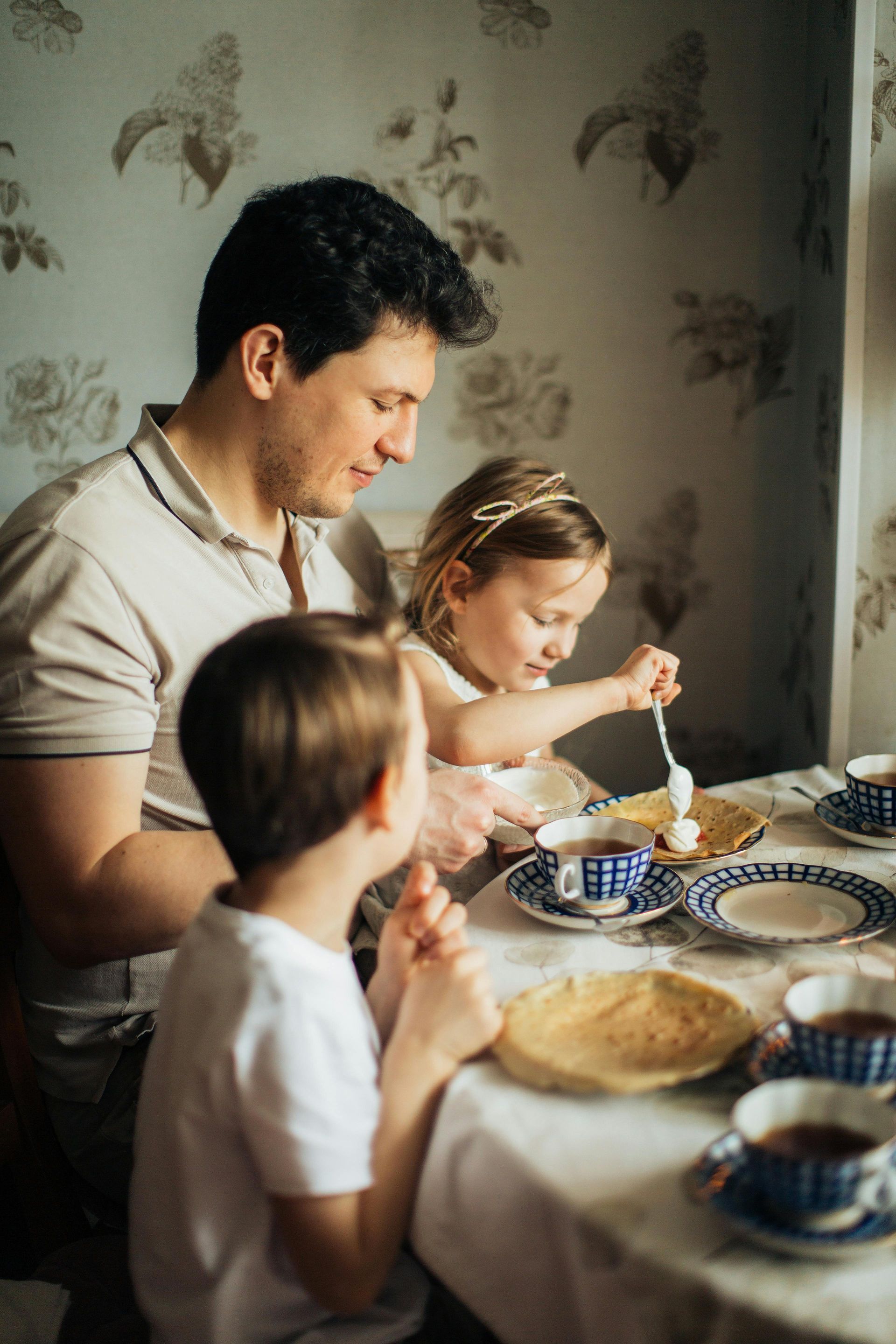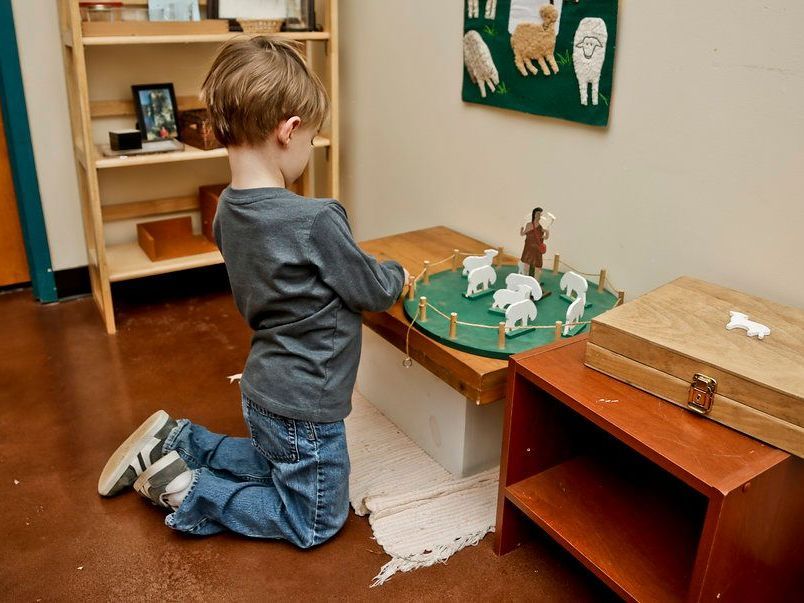
"The youngest children are capable of the greatest love"
- Sophia Cavaletti, co-founder of Catechesis of the Good Shepherd
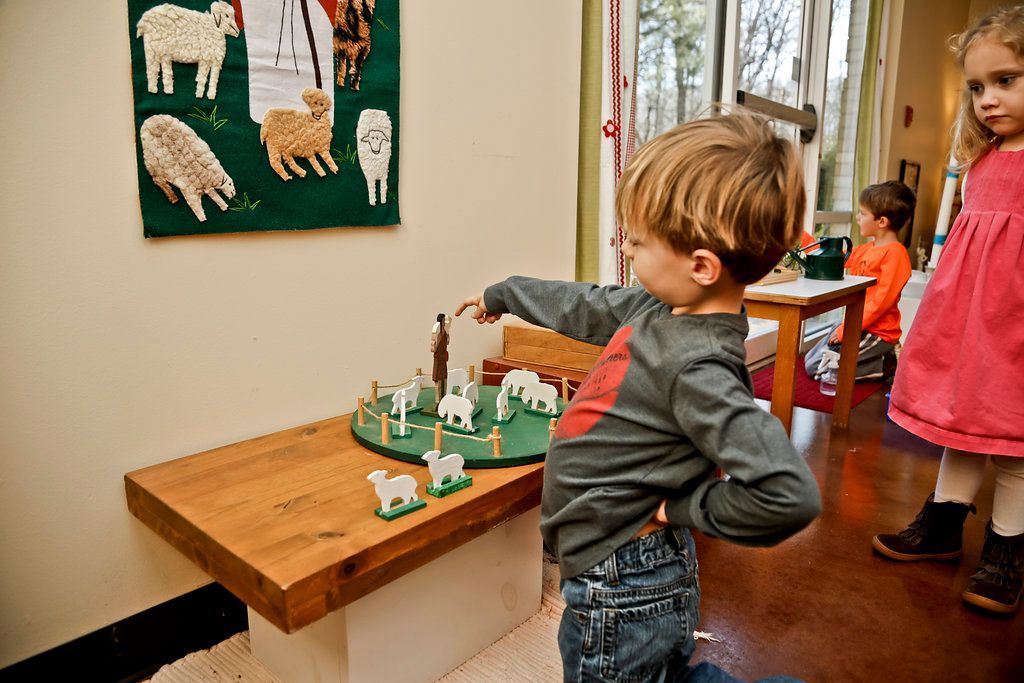
Montessori education emphasizes nurturing the whole child, including their early spirituality. Cross of Life Montessori is one of the few accredited Montessori schools that utilizes the Catechesis of the Good Shepherd (CGS) curriculum to foster children’s spiritual development. CGS combines hands-on learning in a carefully prepared environment with rich spiritual traditions to invite children deeper into their personal relationships with God. We are delighted to be able to offer CGS as part of our students’ weekly lives at school!
The Atrium: A Prepared Environment that Points to God
The CGS approach to spiritual development begins with a prepared environment called the Atrium. At Cross of Life, our Atrium is a special room set apart from the classroom so children know they are entering into a sacred space. Just like a Montessori classroom, the Atrium is set up to support children’s exploration of faith at their own speed. CGS is rooted in the idea of walking alongside children and creating opportunities for them to encounter and connect with God. The Atrium is intentionally designed to be simple and approachable for children to make the abstract concept of God concrete through materials that represent key elements of Christianity. In the Atrium, children learn to listen, pray, and experience the presence of God in a meaningful way.
Children in the primary class (ages 3-6) enter the Atrium in small groups once a week. In the same way that new materials are presented to children in the classroom, the catechist (teacher) in the Atrium introduces a scripture passage with corresponding materials each week. For example, the Catechist may read the Good Shepherd parable and invite children to work with a small model of a shepherd with sheep. The children would then be invited to reflect on and explore themes of care, guidance, and relationship with God through the model of the shepherd and sheep. The materials offered in Atrium are always simple and limited to help guide the children’s focus.
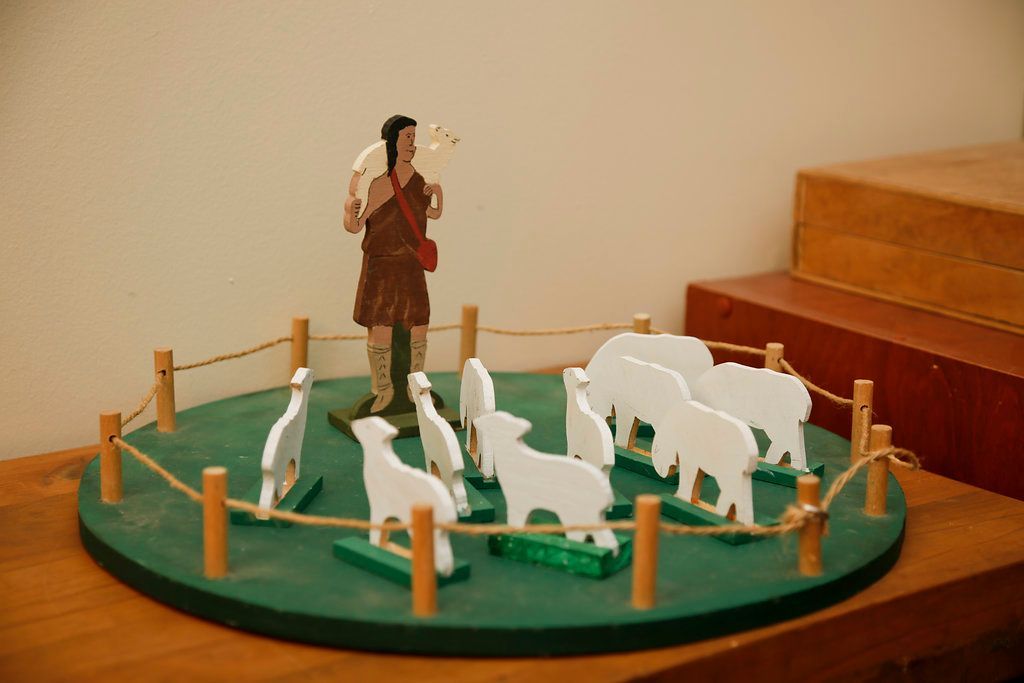
After listening to the week’s scripture reading and being introduced to the materials, the children and the catechist discuss simple reflective questions. These questions encourage children to think about the mystery of God and His love for us. Questions often focus on understanding the child’s perception of the Scripture and how it makes them feel. The point is not for them to know and learn the answers, but rather to develop a curiosity about God and the Scripture passage they heard that week. After discussing the questions, children are invited to take turns interacting with the materials.
The Benefits of Catechesis of the Good Shepherd
In the Atrium, children joyfully experience God’s love. One of the main benefits of CGS is its focus on child-centered learning, which encourages each child’s natural wonder and curiosity about God at their developmental stage. Through the hands-on materials and prepared activities, children explore the foundations of Christian faith in a way that inspires their hearts. The CGS method of religious education allows even the youngest children to absorb and reflect on spiritual truths at their own pace.
Rather than “teaching” children about faith, CGS is rooted in the idea of walking alongside them and creating opportunities for them to encounter God. By connecting the beautiful and simple physical materials to the Bible stories, God is made real in a tangible way. This fosters a genuine and enduring faith experience and enables students to connect the spiritual lesson to other areas of their lives as well.
Young children have a vast capacity for prayer and connection with God. In fact, God and children are already in a relationship - working with the Catechesis of the Good Shepherd materials simply affirms what they know and invites them into a deeper connection with their Creator. We hope that by nurturing the children's faith through joyful and loving experiences, this faith will stay with them for a lifetime, leading them to many years of happiness, service, fulfillment, and peace.
For more examples of the CGS experience for our students, check out our blog post about Fostering Spirituality in Children.
